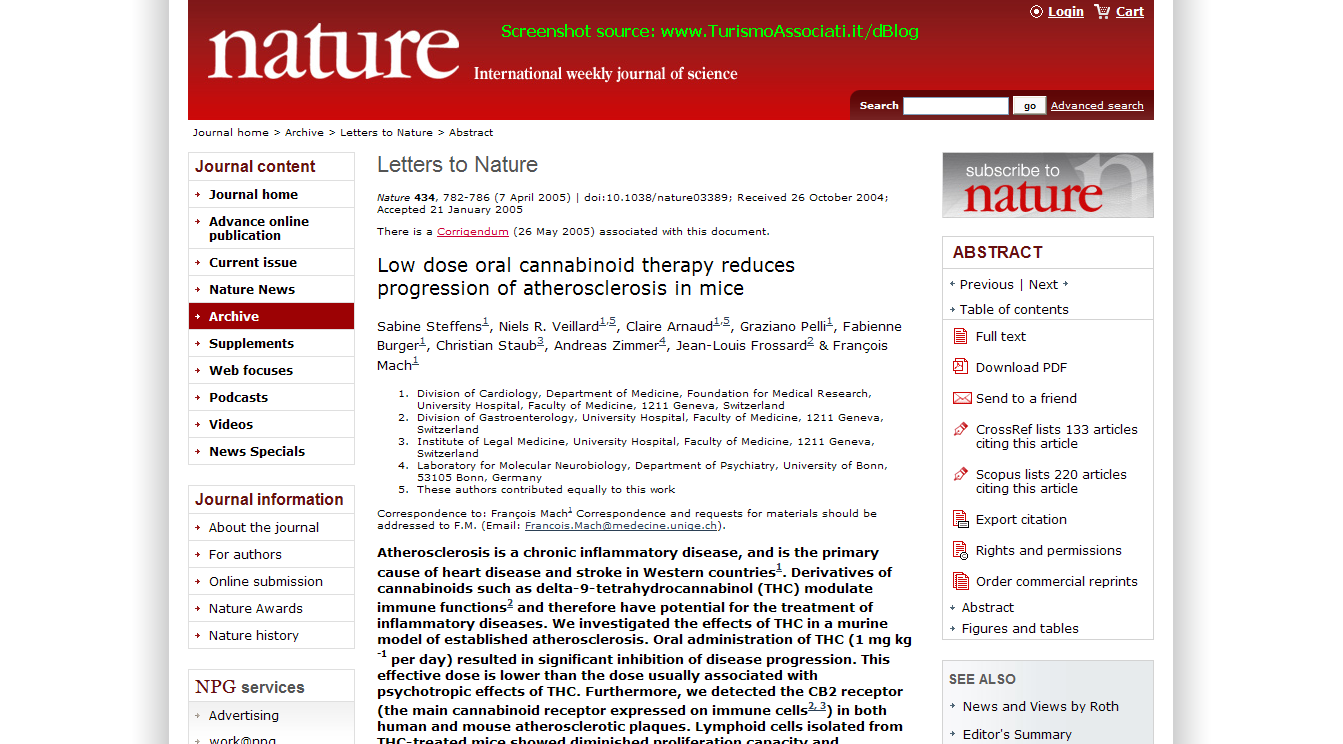The work is being led by Dutch chemist and nanoparticle expert Willem Mulder, PhD, who has served as director of the Nanomedicine Laboratory at Mount Sinai since founding it in 2006.

Dr. Mulder and his team specialize in the use of nanoparticles in heart disease, and have recently taken an interest in the therapeutic potential of cannabinoids – a class of compounds found in marijuana.
Since 2005, pre-clinical evidence has shown that cannabinoids can slow the progression of atherosclerosis – a disease of the arteries that underlies various heart conditions – in mice.

Cannabinoids appear to be a promising treatment because of their anti-inflammatory properties. However, research in humans faces a number of barriers.
Dr. Mulder and his team believe that creating nano-drugs from cannabinoids may help to overcome one of the largest of these barriers: the 'high.'
Dr. Mulder has previously shown that nanoparticles, which are composed of an outer layer of fatty molecules, possess a natural attraction to the atherosclerotic plaque that accumulates on the inner walls of blood vessels.
By delivering cannabinoids via nanoparticles, Dr. Mulder says the drugs will never have to reach the brain, thereby avoiding any psychoactive effects.
Dr. Mulder told AD.nl in a recent interview that he hopes to start the first human trials sometime in the next 5 years. But in total, he says it could take 15 years for the therapy to reach the clinic.
Funding is another major obstacle of his research. In order to raise support for his work, Dr. Mulder has partnered with a team of Dutch filmmakers that are documenting his progress.
Led by Gert van Kempen, the High On Nano project will release a series of short films that will help bring the research to the public eye. They plan to raise €30,000 in order to begin production of the first episode by Spring 2014.
Source: AD.nl via LeafScience